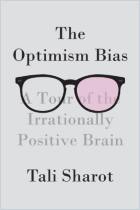
Recommendation
Which comes first, satisfaction or success? If you’ve been working hard on a goal that you think will bring you happiness, you might want to reverse your strategy, or so say psychology doctoral candidate Lisa C. Walsh and psychology professors Julia K. Boehm and Sonja Lyubomiersky. The three reviewed more than 170 studies, finding that happiness appears to precede success. But don’t worry if you’re not perpetually filled with glee. Happiness isn’t 100% necessary to achieving success: some of history’s most famous depressives have managed to accomplish a few things, too.
Summary
About the Authors
Lisa C. Walsh is a psychology doctoral candidate at the University of California, Riverside. Julia K. Boehm teaches psychology at Chapman University. Sonja Lyubomirsky teaches psychology at the University of California, Riverside and authored The How of Happiness.





















Comment on this summary